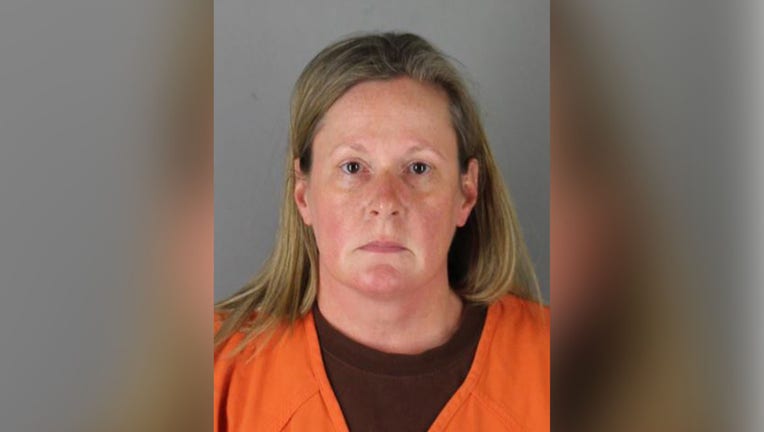Daunte Wright shooting: First look at juror questionnaire in Kim Potter trial

Former Brooklyn Center police officer Kim Potter has been charged with first-degree and second-degree manslaughter in the shooting death of Daunte Wright. (FOX 9)
BROOKLYN CENTER, Minn. (FOX 9) - The manslaughter trial of Kimberly Potter, the former Brooklyn Center police officer charged in the traffic stop shooting death of Daunte Wright last April, is just 20 days away.
We learned this week, the high-profile, high-stakes trial will be broadcast live with cameras in the courtroom, just like the trial of Derek Chauvin. Judge Regina Chu cited the COVID pandemic and significant public interest for allowing audio and video feeds from another Hennepin County trial. Minnesota law generally does not allow cameras inside the courtroom for criminal trial proceedings.

Daunte Wright shooting: First look at juror questionnaire in Kim Potter trial
Similar to Chauvin?s trial, the court has asked dozens of prospective jurors to fill out lengthy questionnaires before coming to court for the trial of Kim Potter, the former officer charged in Daunte Wright's death.
In addition to those developments, FOX 9 is getting a look at the questionnaires prospective jurors have filled out before jury selection even begins.
Also similar to Chauvin’s trial, the court has asked dozens of prospective jurors to fill out lengthy questionnaires before coming to court.
The hope is both sides can eliminate some people with strong feelings, unable to be impartial in advance, and then get right into jury selection with people they will at least have some background on.
The questionnaires are made up of 13 pages of questions including space to detail everything a person knows about the case, Daunte Wright and Potter, the defendant.
FOX 9’s Paul Blume spoke to local criminal defense attorney Ryan Pacyga, who is not directly connected to the case.
"What did you see? what did you in particular remember about it? I think that was an important, just from a narrative response that way," explained Pacyga about having prospective jurors write down everything they know coming into court. The document orders a prospective juror recipient not to read or research any more about the case once they receive the document in the mail.
Pacyga believes one specific question about how many times a prospective juror has watched the body camera footage of the deadly traffic stop shooting will be critical as the two sides attempt to find an impartial panel.
"That became a theme a little bit in the Floyd and Chauvin trial," said Said Pacyga. "How many times was that shocking video seen by somebody? Is it imprinted on their brain to the extent that they can’t separate what’s said in testimony versus what’s played on that video?"
Other sections touch on a person’s contacts with law enforcement, have they, or someone close to them been arrested? Have they advocated for or against police reform?
Pacyga said if he was questioning prospective jurors, he would pay close attention to their answers in the section where they are asked to grade their response on a wide range of topics including discrimination, how the legal system treats minorities, and whether police should ever be second-guessed because of the dangers of the job.
"If jurors have strong feelings one way or the other about some of these tangential issues that are not germane to guilt or innocence in this case, but it may tilt a juror’s ability to presume officer potter innocent or hold the government to its burden of proof beyond a reasonable doubt," concluded Pacyga.
What is unclear is just how big the prospective jury pool is for Kimberly Potter’s trial. The court did not comment on how many of these questionnaires went out. The copy obtained by FOX 9 stated a prospective juror had until August 31st to return the forms to the court.
What we do know for certain is the trial gets underway on the 18th floor of the Hennepin County Government Center on November 30th with jury selection. The plan is then to have opening statements on December 8th. Judge Chu anticipates the trial to run for about two weeks.

